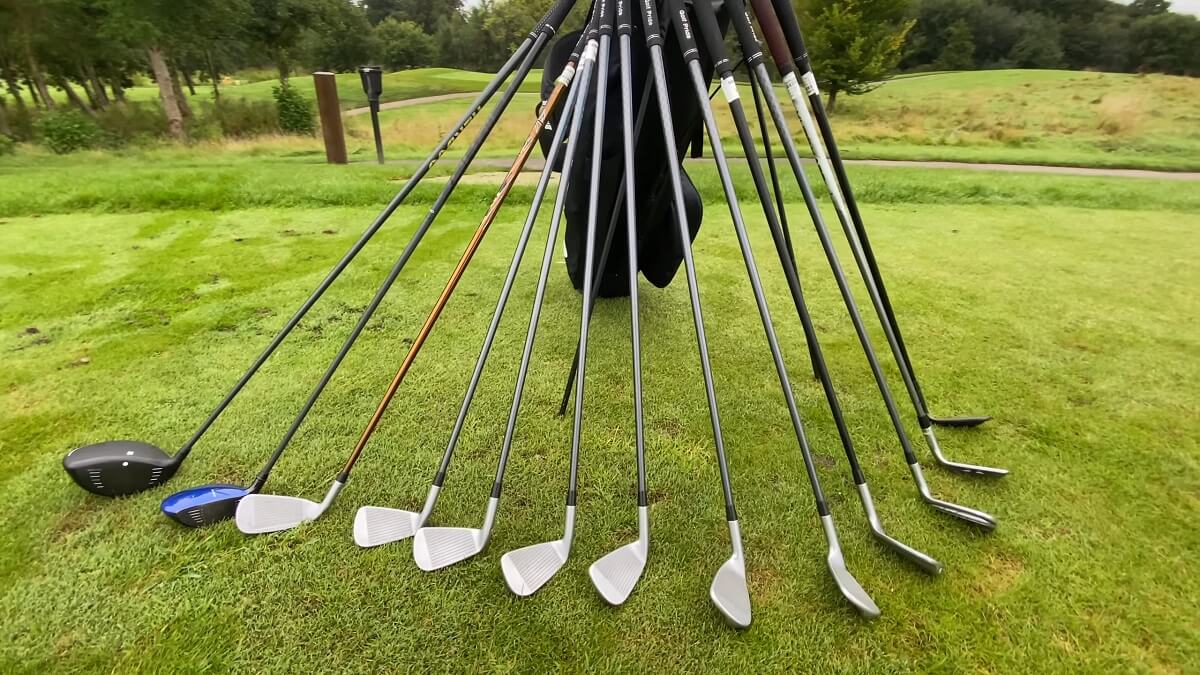When I first looked into golf shafts, I learned quickly that they can change how you play the game. I realized that swing speed, accuracy, and overall performance depend heavily on the right shaft. Whether you are aiming for more distance or better control, understanding how the shaft’s material, flex, and other details work will give you a clear advantage on the course. Selecting the right one for your swing can make all the difference.
So I spent some time learning more about the definition and types. Now I will share the essentials.
Definition of a Golf Shaft
| Function | Transfers energy from the golfer to the club head |
| Material Options | Steel, Graphite, Composite |
| Influence on Game | It affects swing speed, control, distance, and accuracy |
| Flex | Determines shaft’s bend, impacts trajectory, and shot |
The golf shaft is the component that connects the club head to the grip, but its role goes beyond just being a connector. It is responsible for transferring the energy generated from your swing directly to the club head, affecting everything from the speed of the club to how far and accurately the ball travels.
“According to GolfWRX, some of the most popular driver shafts among top golfers include the Fujikura Ventus TR Blue, Fujikura Ventus Black, and Graphite Design Tour AD-DI. Players like Rory McIlroy, Scottie Scheffler, and Hideki Matsuyama use these shafts, but they are optimized for their unique swings and may not be ideal for recreational golfers”.
Types of Golf Shafts
| Steel | Durable, consistent, heavier, and less flexible |
| Graphite | Lightweight, flexible, reduces vibrations, increases speed |
| Composite | Mix of steel and graphite, balances strength and flexibility |
There are three main types of golf shafts, each offering unique advantages depending on the golfer’s swing and playing style.
Steel Shafts
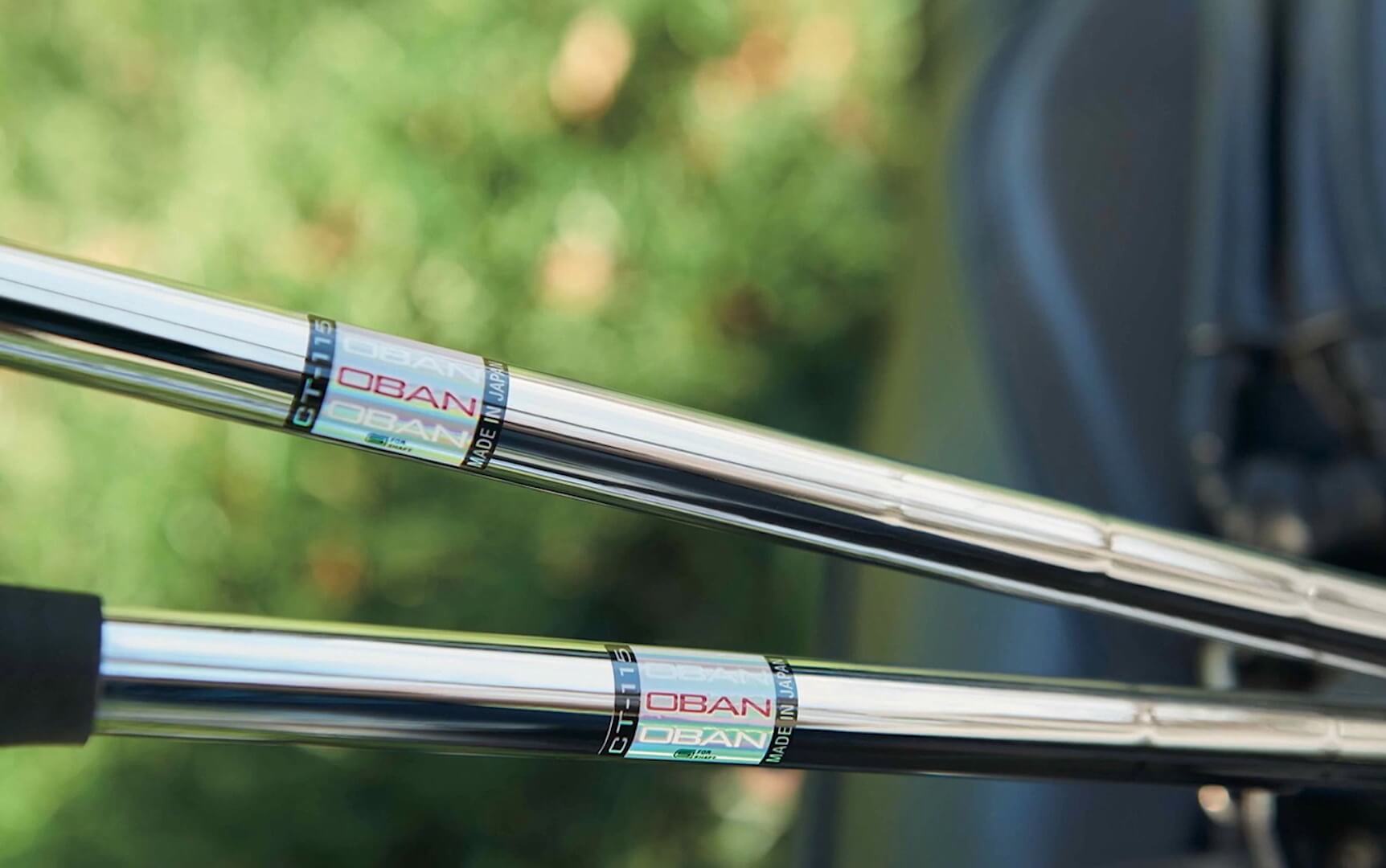
These are the most durable and consistent shafts. They are heavier and less flexible, making them ideal for players who prioritize control and accuracy over distance. Skilled golfers often prefer steel because of its reliable feedback during swings.
A review provided by Today’s Golfer highlights that some of the best steel iron shafts for 2024 include the True Temper Dynamic Gold, known for its stiff profile and low-launch. characteristics
Graphite Shafts
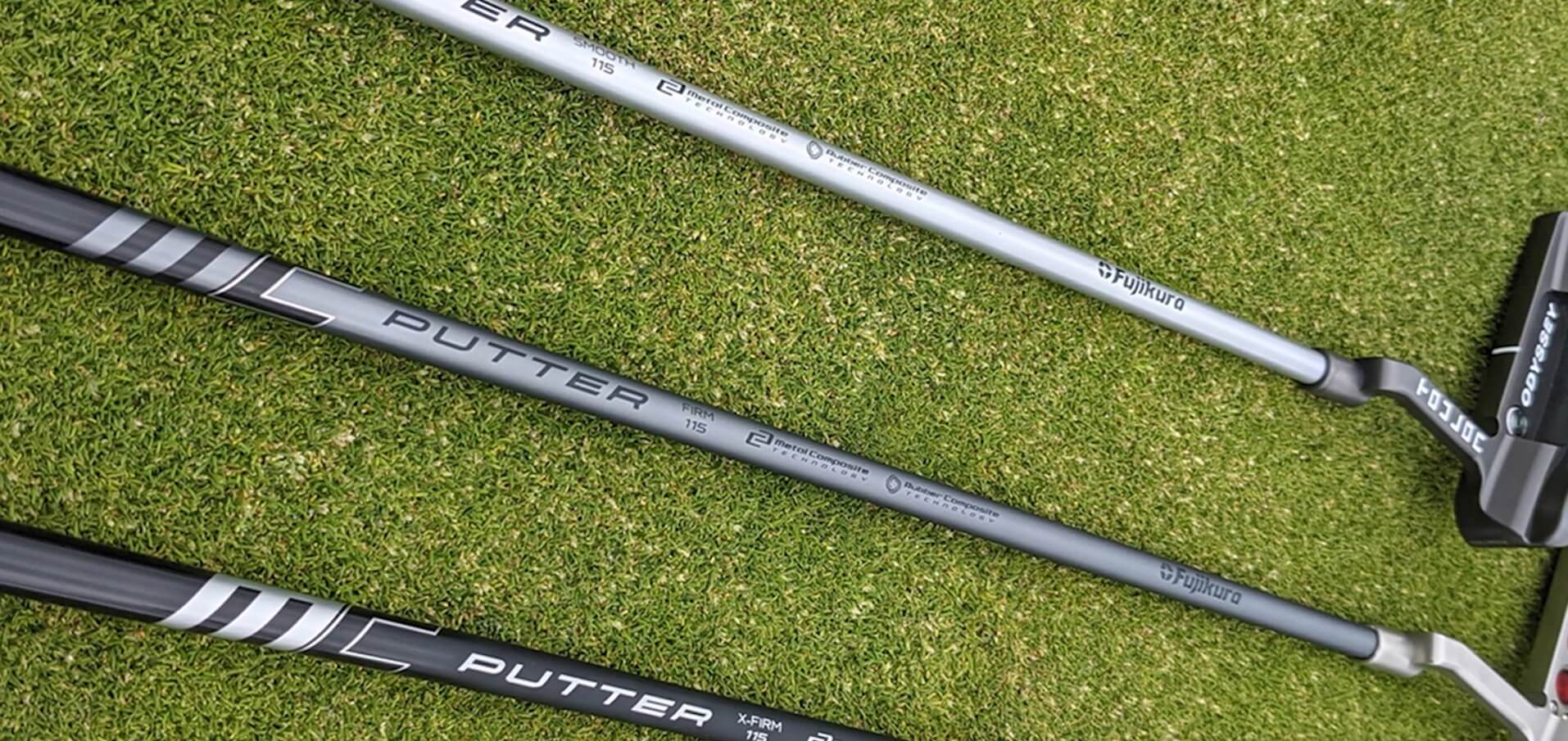
These shafts are lighter and more flexible than steel. They are popular among beginners and golfers with slower swing speeds because the reduced weight helps increase swing speed and distance. Graphite shafts also absorb more vibrations, making them a comfortable choice for players with joint pain.
Another review was made by Curated, it was about the best graphite shafts in 2024. “Some of the best graphite shafts include the Fujikura Axiom, which offers VeloCore technology for enhanced stability, and the Mitsubishi Tensei AV series.”
Composite Shafts
Combining elements of both steel and graphite, composite shafts offer a balance of strength and flexibility. They provide control similar to steel while offering some of the speed and comfort benefits of graphite, making them versatile options for a wide range of players.
Composite shafts are complex due to the combination of multiple materials, which results in a variety of flex patterns, torque characteristics, and weight adjustments. This makes it hard to predict how they will feel or perform without testing, as their construction directly affects swing dynamics and ball flight.
As Ryan Noll explains, “Shaft science is arguably the most complex aspect of golf equipment technology,” highlighting the intricate factors that impact performance on every swing.
Steel vs. Graphite Shafts
| Steel Shafts | Graphite Shafts | |
|---|---|---|
| Weight | Heavier (90-130 grams), better for control and stability | Lighter (50-90 grams), ideal for increased swing speed |
| Flexibility | Stiffer, offering better control for high swing speeds | More flexible, suited for players with slower swing speeds |
| Vibration Absorption | Less absorption, more impact feedback on mishits | Absorbs more vibrations, reducing discomfort on mishits |
| Durability | More durable and longer-lasting | Lighter, but less durable over time |
| Cost | Generally cheaper | More expensive |
Steel shafts are known for their control and durability, often favored by players with faster swing speeds who value precision over distance. The extra weight of steel provides a more solid feel, giving golfers better feedback on their shots. Golfers like Dustin Johnson and Rory McIlroy use steel shafts in their irons.
For Dustin Johnson’s 2024 bag, the shafts used are:
- Driver: Fujikura Speeder 661 Evolution 2.0 Tour Spec X
- Fairway Woods: LA Golf Prototype shafts (in both the 15° and 21° fairway woods)
- Irons: True Temper Dynamic Gold Tour Issue X100 shafts (used in his TaylorMade P730 DJ Proto irons)
- Wedges: KBS Tour 120S shafts (for his TaylorMade MG4 wedges)
Graphite shafts, on the other hand, are lighter and more flexible, allowing players to generate more swing speed. Golfers like Bryson DeChambeau use graphite in their longer clubs to maximize power and distance. However, graphite shafts tend to be less durable than steel and come at a higher price.
Unlike most pros, Bryson uses graphite shafts in all of his clubs, including his putter, thanks to his partnership with LA Golf. This decision is aimed at maximizing speed, control, and precision.
Here’s a quick look at his favorite shafts:
- Driver: Custom LA Golf prototype graphite shaft
- Fairway Woods: Custom LA Golf graphite shafts
- Irons: Custom LA Golf graphite shafts
- Putter: LA Golf stiff graphite shaft
How Torque Affects Your Swing?

Torque refers to the amount of twisting a golf shaft undergoes during a swing. It is measured in degrees, and it directly affects how the clubface aligns at impact, influencing the accuracy and feel of the shot.
A higher torque value means the shaft twists more, while a lower torque indicates less twist.
Also, check out some of the best charity golf tournaments in 2024.
High Torque vs. Low Torque
- High Torque: Shafts with higher torque values (around 4-6 degrees) twist more during the swing. This can lead to less consistent shot accuracy but provides a softer, more forgiving feel. High-torque shafts are generally more suitable for golfers with slower swing speeds, like beginners or senior players, as they offer more flexibility and distance at the cost of precision.
- Low Torque: Low-torque shafts (below 3 degrees) are stiffer and twist less, providing greater stability and accuracy during the swing. These shafts are better suited for players with faster swing speeds, as they help maintain better control of the clubface through impact, resulting in more accurate shots.
How to Choose Based on Torque?
- For slower swings: Players with slower swing speeds benefit from higher torque shafts that allow more flex and help in generating additional distance.
- For faster swings: Players with faster swings need the stability of lower torque shafts to ensure their shots remain accurate and controlled, even with higher speed.
You Can Customize Your Golf Shaft
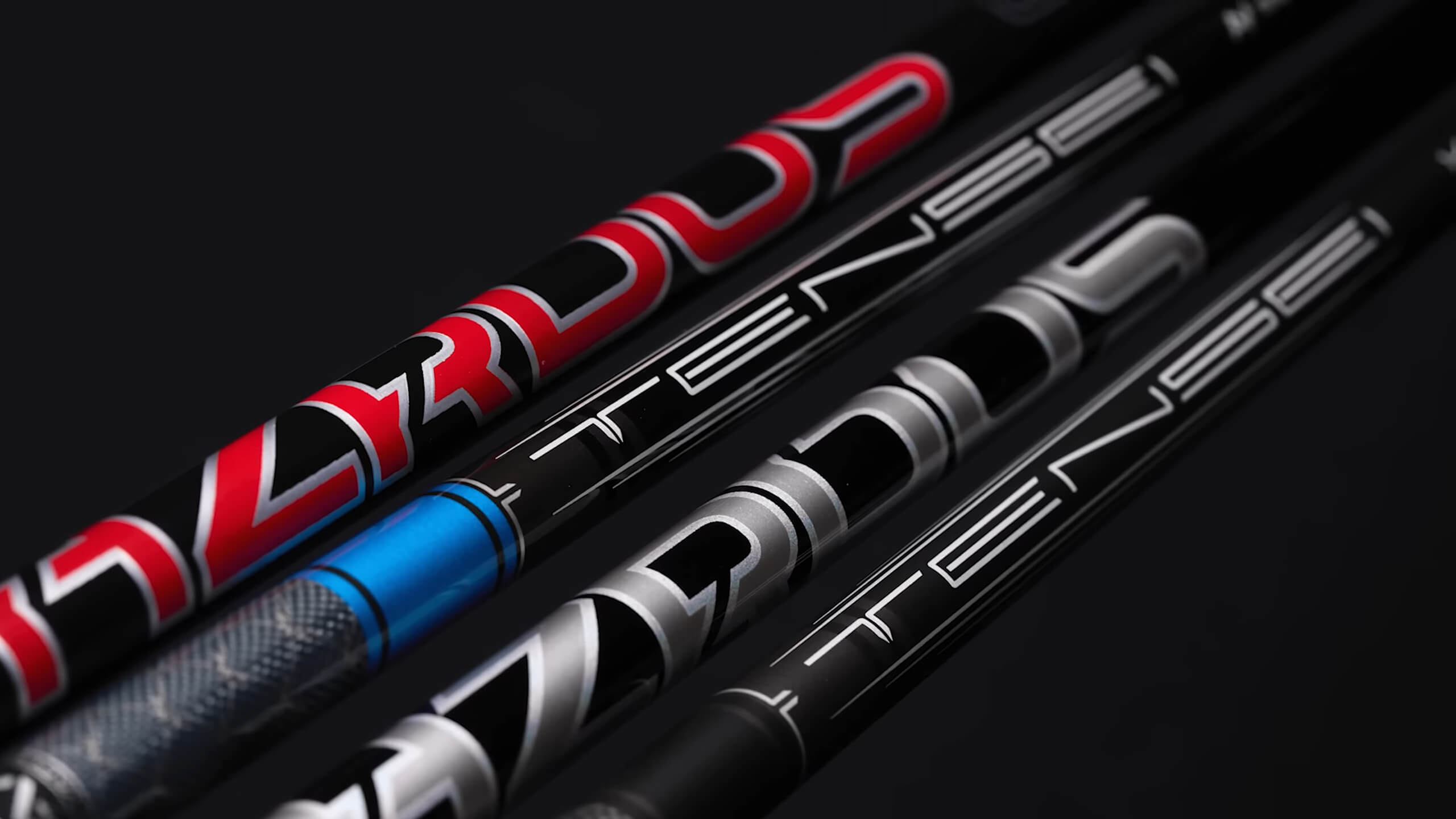
With various options available, you can adjust every detail of your shaft to suit your swing style, body mechanics, and performance.
Length
Standard golf shafts vary depending on the type of club, but you can customize the length to suit your needs. A longer shaft can increase swing speed, helping you hit the ball further. However, it may compromise control. On the other hand, shorter shafts can improve accuracy but reduce the distance of your shots.
Keep in mind that other details can also make a difference, even the umbrella size.
Flex
Flex customization is one of the most crucial adjustments. Flex refers to how much the shaft bends during a swing, and matching it to your swing speed can make a significant difference.
- Extra Stiff (X): Used by golfers with swing speeds over 110 mph, like Dustin Johnson, who need maximum control and distance.
- Regular (R): For average swing speeds (85-95 mph), offering a balance of distance and control.
- Senior (A) or Ladies (L): Designed for slower swing speeds, these provide greater flex, helping players gain distance without needing extra power.
Weight
Customizing the weight of your golf shaft allows you to choose between ultralight shafts for increased speed or heavier shafts for better control. Bryson DeChambeau, for instance, uses heavier shafts to gain stability and control over his powerful swing. Conversely, beginners often start with lighter shafts to increase swing speed and gain distance.
Kick Point
Kick point refers to the spot on the shaft where it bends the most during a swing. A high kick point produces a lower ball trajectory, which is ideal for players seeking more roll on the fairways. A low kick point, on the other hand, produces a higher ball flight, perfect for players who want more carry distance.
Best Brands for Golf Shafts
| Brand | Model | Key Features | Popular Golfers Using It |
|---|---|---|---|
| Fujikura | Ventus Black & Blue | Low torque, excellent control for high-speed swings | Rory McIlroy, Scottie Scheffler |
| Project X | HZRDUS Smoke Black & Red | Low launch, low spin, optimal for aggressive players | Dustin Johnson, Jon Rahm |
| Mitsubishi | Tensei 1K Pro White | Lower launch angle, stiff midsection, superior control | Bryson DeChambeau |
| KBS | Tour Iron Shafts | Balanced flex, great for mid-handicappers | Justin Rose, Rickie Fowler |
| Aldila | NVS 65 Graphite Shaft | Stiffer tip, high-performing, low launch | Used by many mid-handicappers |
| Graphite Design | Tour AD DI | Penetrating ball flight, high-quality consistency | Tiger Woods, Jordan Spieth |
1. Fujikura Ventus Black & Blue
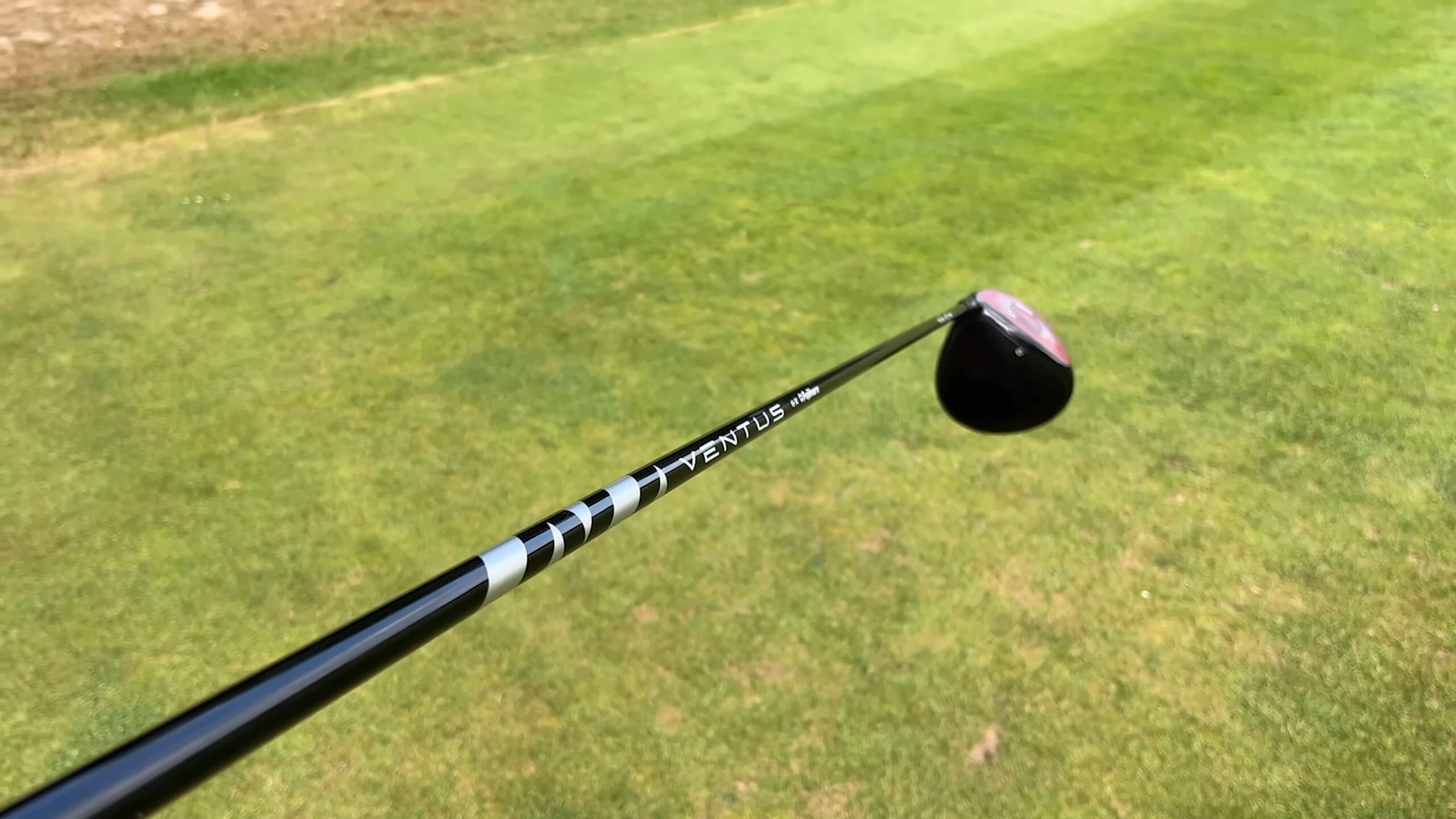
Fujikura’s Ventus shafts have gained huge popularity on the PGA Tour for their VeloCore technology, which enhances stability by reducing torque. The Ventus Black offers a lower launch, making it a perfect fit for powerful swingers like Rory McIlroy, while the Ventus Blue is slightly softer, providing versatility for a wider range of players.
2. Project X HZRDUS Smoke Black & Red
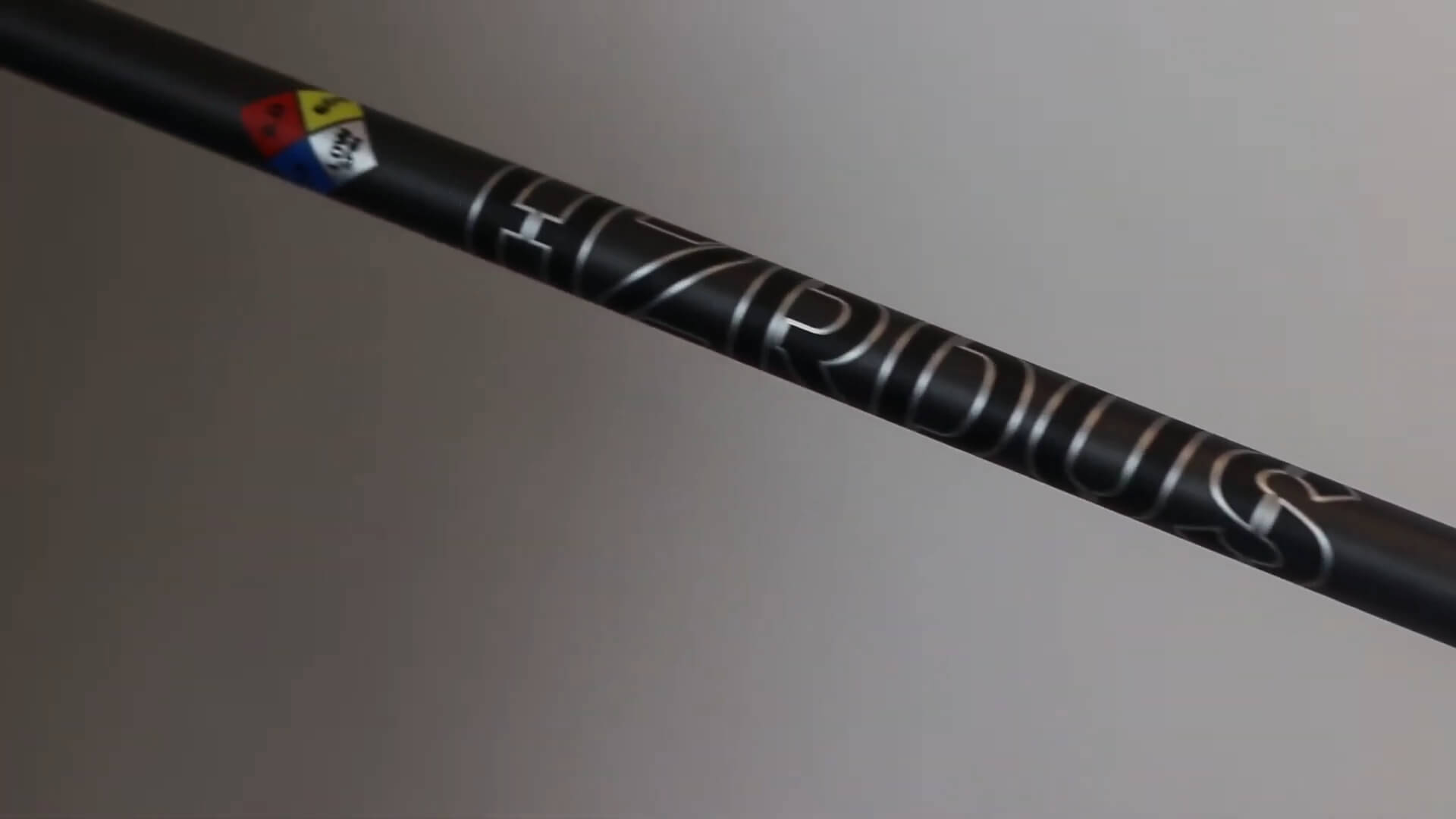
The Project X HZRDUS line is known for its low launch and low spin, designed for players with fast swings who need more control. This shaft helps to minimize spin and enhance shot consistency. It’s a favorite among elite golfers like Dustin Johnson and Jon Rah.
3. Mitsubishi Tensei 1K Pro White
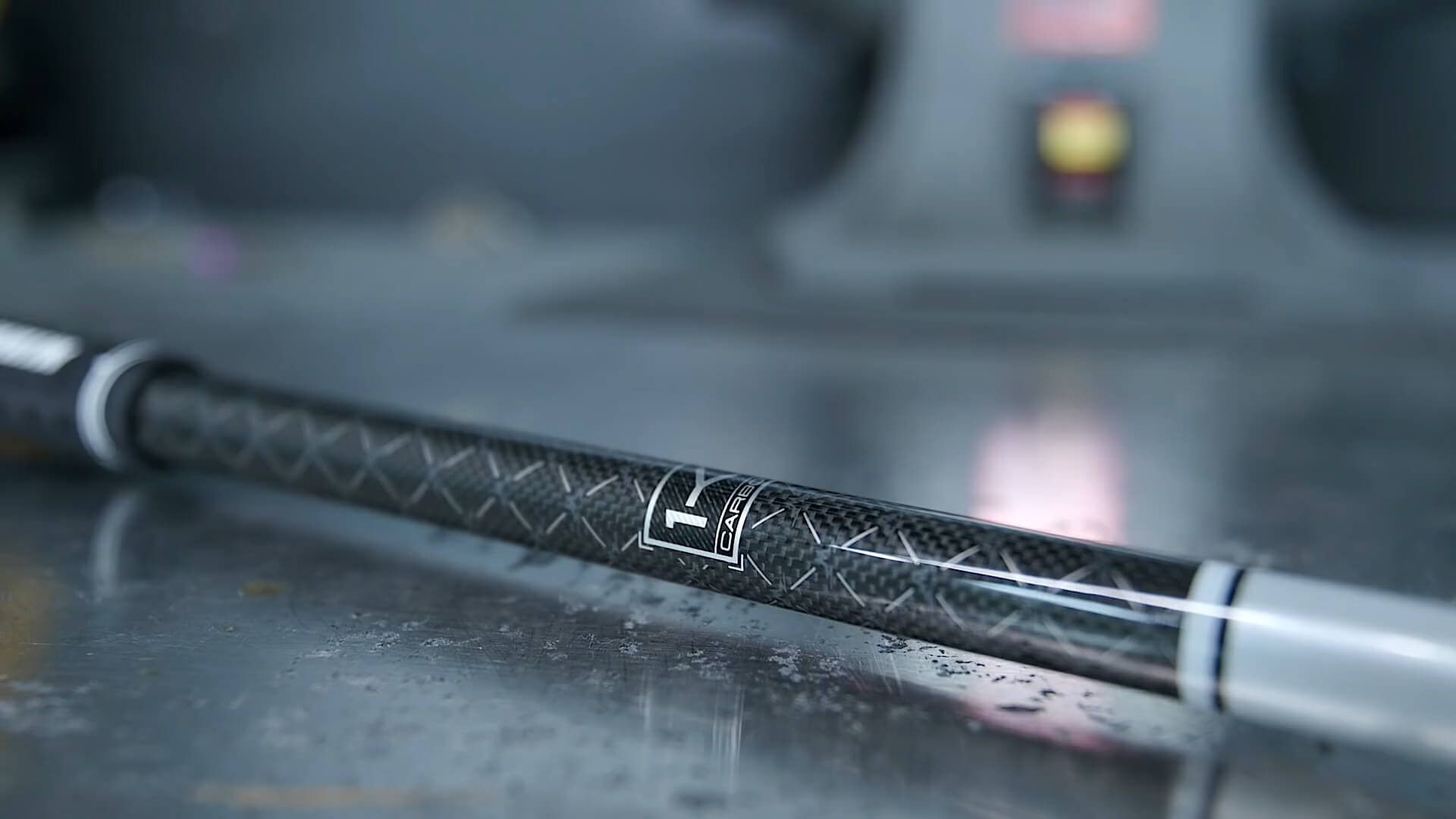
This shaft is ideal for players with high swing speeds looking for lower spin and tighter dispersion. With its stiff midsection and active tip, it allows for better control during the swing, and Bryson DeChambeau is known to use it for his powerful, aggressive style.
4. KBS Tour Iron Shafts
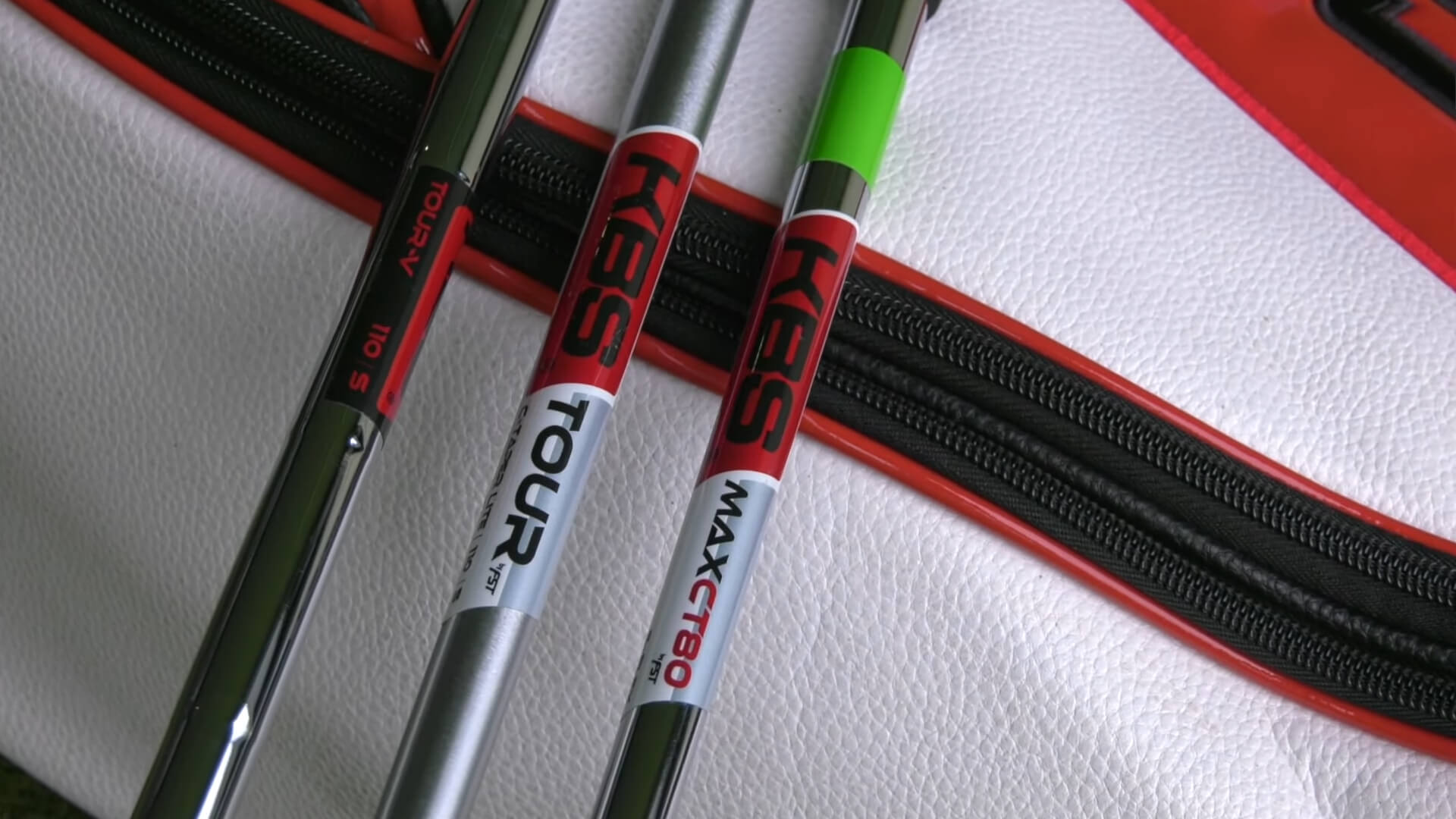
Known for their versatility, KBS Tour iron shafts offer mid-kick points and weights ranging from 110-130 grams. These shafts provide exceptional control and shot-making abilities, and pros like Justin Rose and Rickie Fowler use them for their balanced feel and performance.
5. Aldila NVS 65 Graphite Shaft
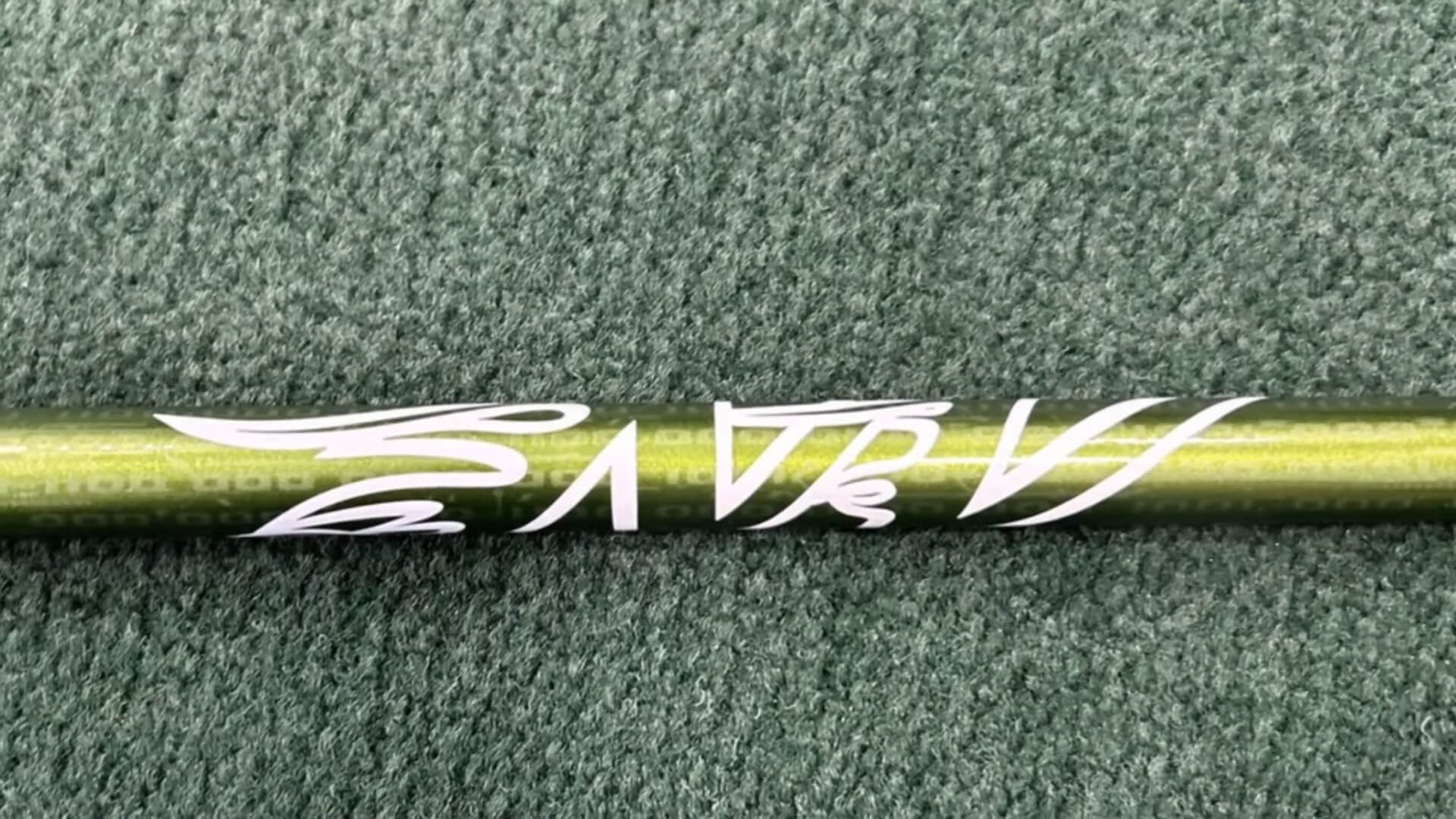
The Aldila NVS 65 is a popular choice for golfers looking for a stiffer tip with lower launch and spin. This shaft helps players maintain control while still achieving impressive distances. It is a solid option for mid-handicappers looking to refine their game.
6. Graphite Design Tour AD DI
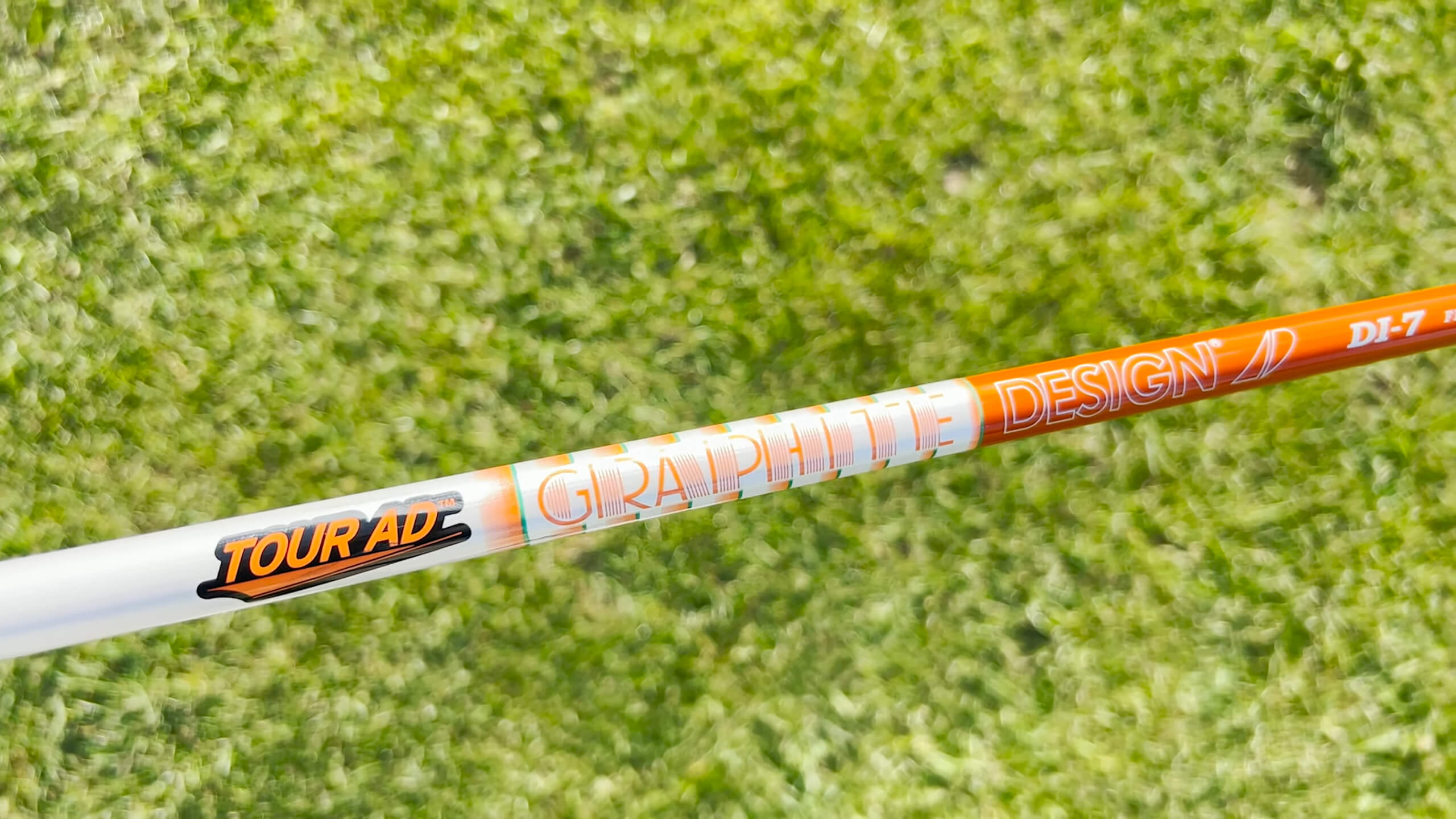
Regarded as one of the best premium graphite shafts, the Tour AD DI offers a penetrating ball flight and superb feel. It’s favored by professional golfers such as Tiger Woods and Jordan Spieth, who rely on its consistent performance to control their shots.
FAQs
How do I know if I need a stiffer shaft?
If your shots tend to fly too high or if you often hit to the left (for right-handed golfers), a stiffer shaft might help reduce those issues. A stiffer shaft provides more control and is ideal for players with faster swing speeds, typically over 95 mph.
Visit a club fitter to measure your swing speed accurately and determine the right stiffness for your game.
Can I use different shafts for my driver and irons?
Yes, many golfers, including professionals, use different shafts for their drivers and irons. Drivers typically use lighter, more flexible shafts like graphite to maximize distance, while irons often use heavier, stiffer shafts like steel for more control and accuracy.
Custom fitting can help ensure the right combination for your swing.
What are the benefits of a custom shaft fitting?
A custom shaft fitting ensures that your equipment matches your swing characteristics, including swing speed, angle of attack, and launch preferences. Fitting professionals use launch monitors to gather data, which helps them recommend the right shaft length, flex, weight, and material. This leads to better accuracy, control, and distance.
Do professional golfers use stock shafts?
Most professional golfers do not use stock shafts, as they often require custom shafts to match their precise swing characteristics. Pros like Dustin Johnson and Bryson DeChambeau use custom-built shafts tailored to their needs.
For example, Bryson uses custom graphite shafts in all his clubs, including his putter, for maximum performance.
How do kick point and shaft flex work together?
Kickpoint and shaft flex both affect ball trajectory but in different ways. The kick point influences where the shaft bends, with a high kick point creating a lower ball flight and a low kick point generating a higher flight.
Shaft flex controls how much the shaft bends overall, which affects both trajectory and shot distance.
Last Words
After learning about golf shafts, it is clear that they play a huge role in shaping how you perform on the course. Finding the right one can improve control, speed, or distance, depending on your needs. Customizing factors like flex, weight, and torque helps you tailor each club to your specific swing.
Top players like Rory McIlroy and Bryson DeChambeau show how much impact these choices have, proving that choosing the right setup is essential for success.

